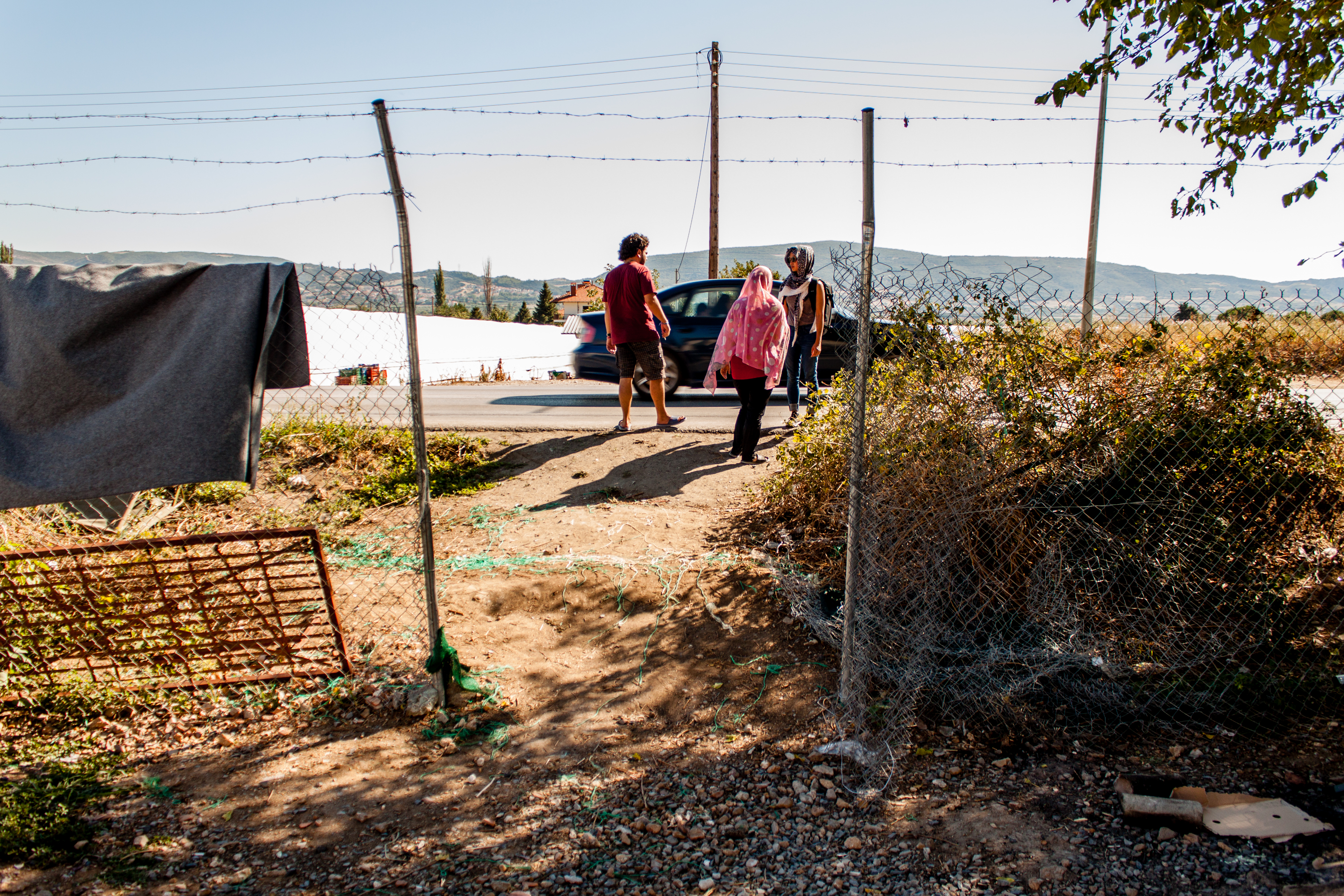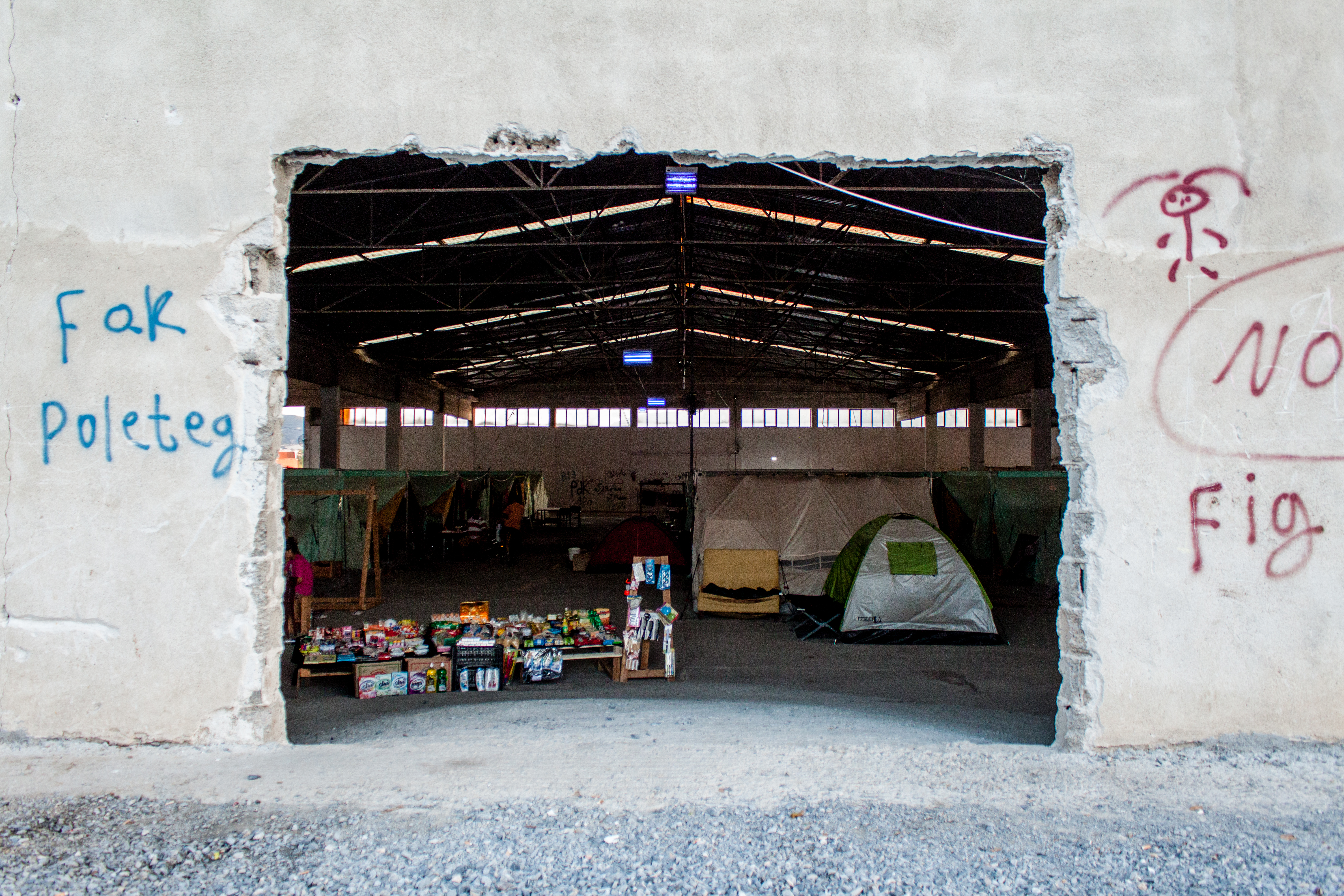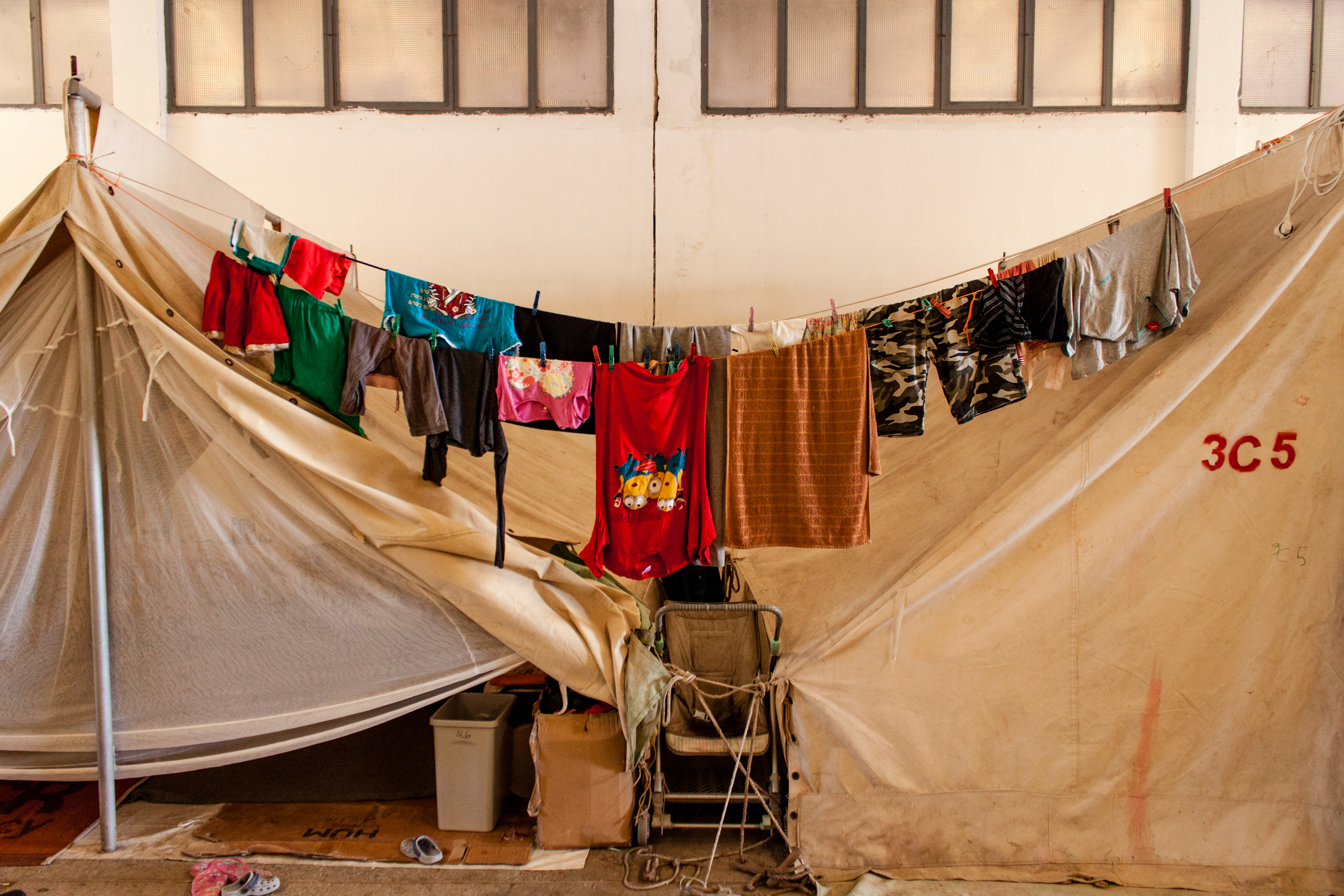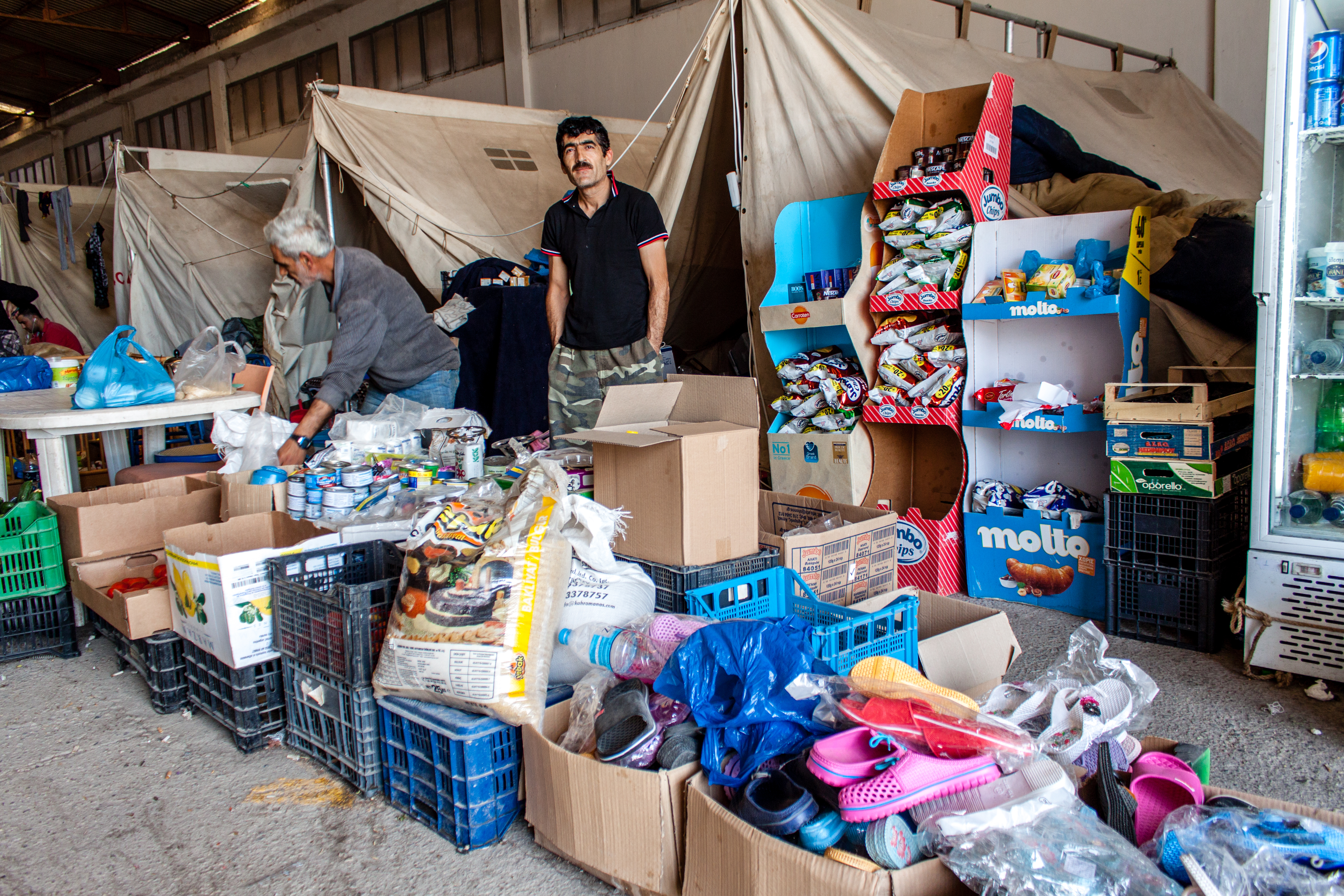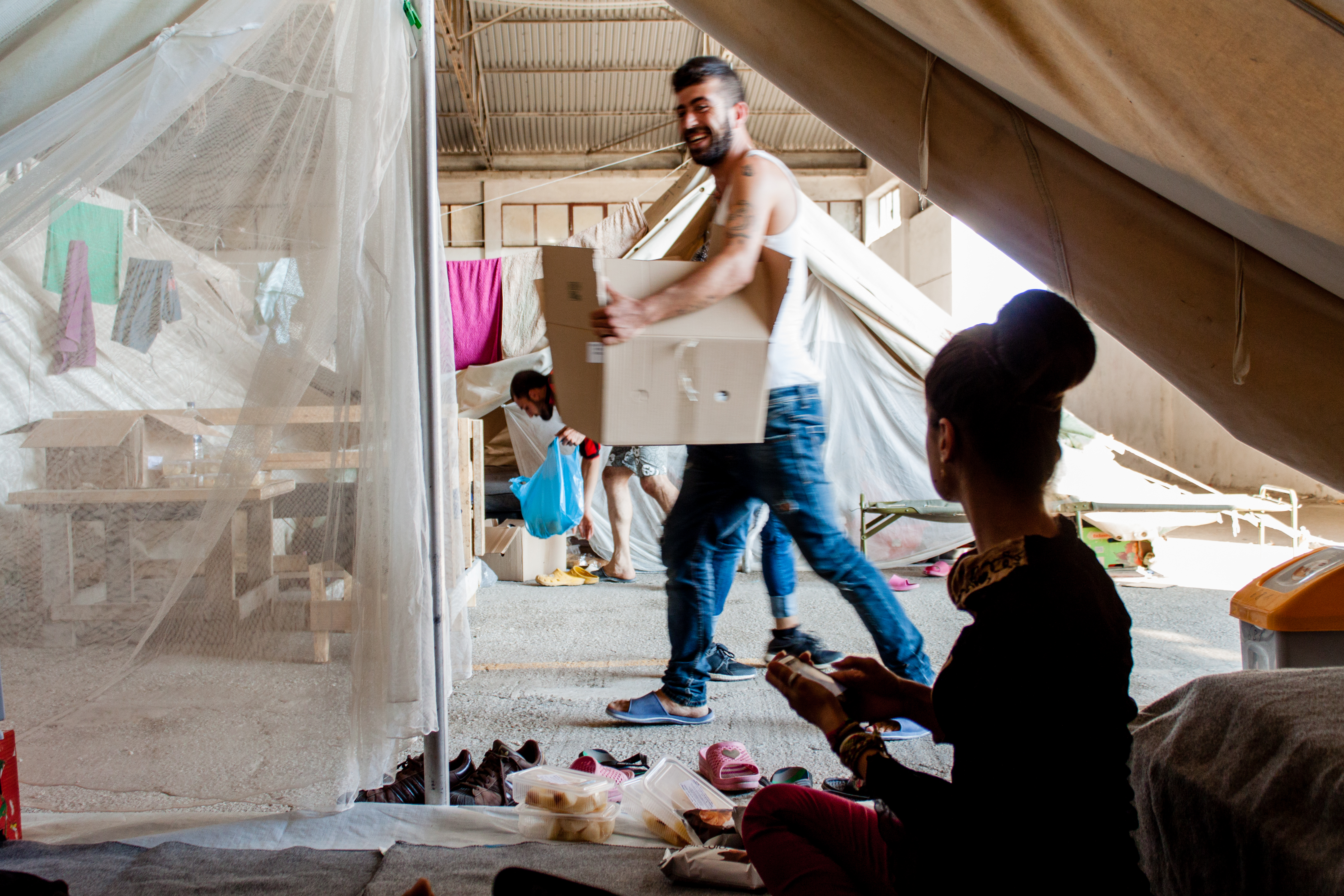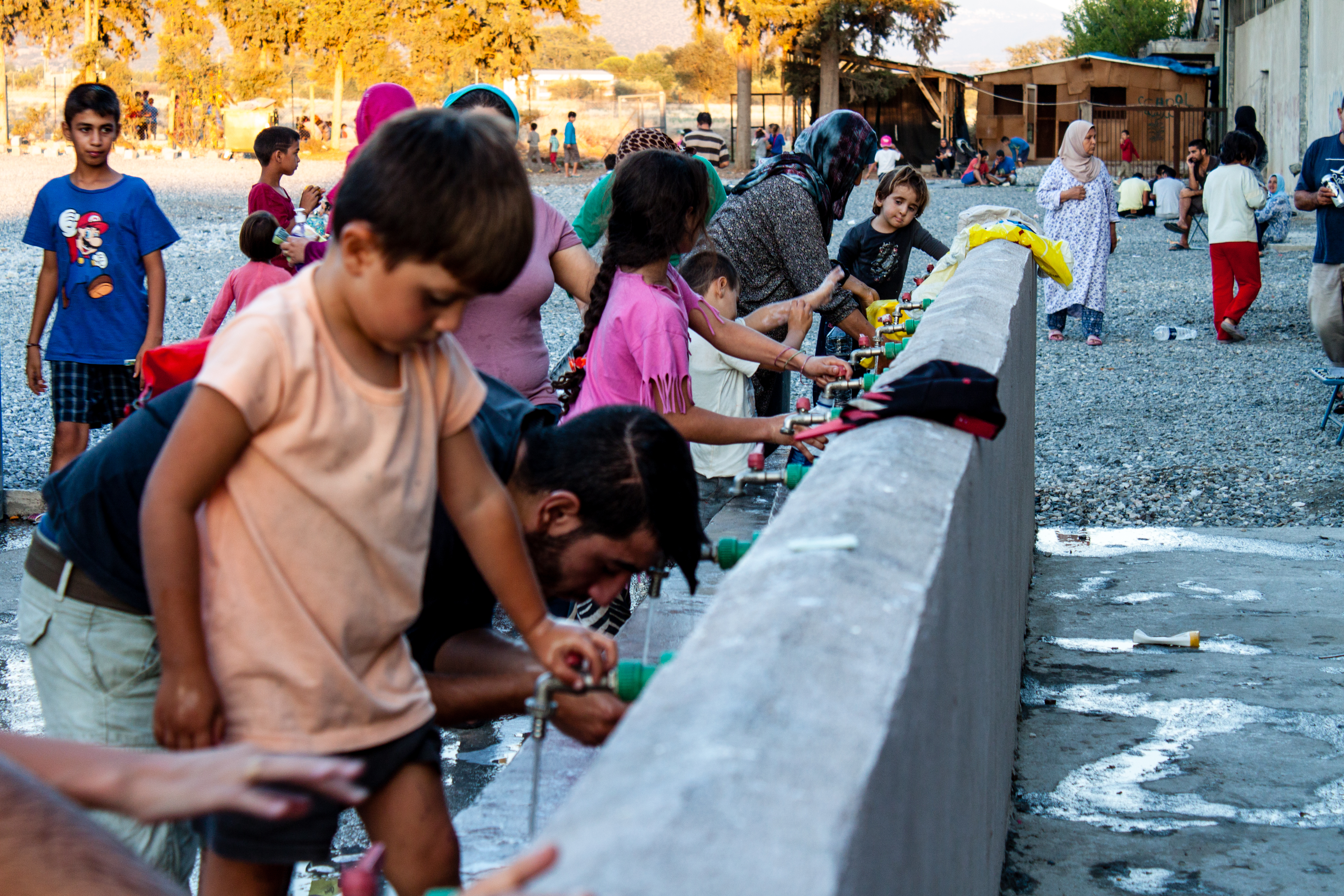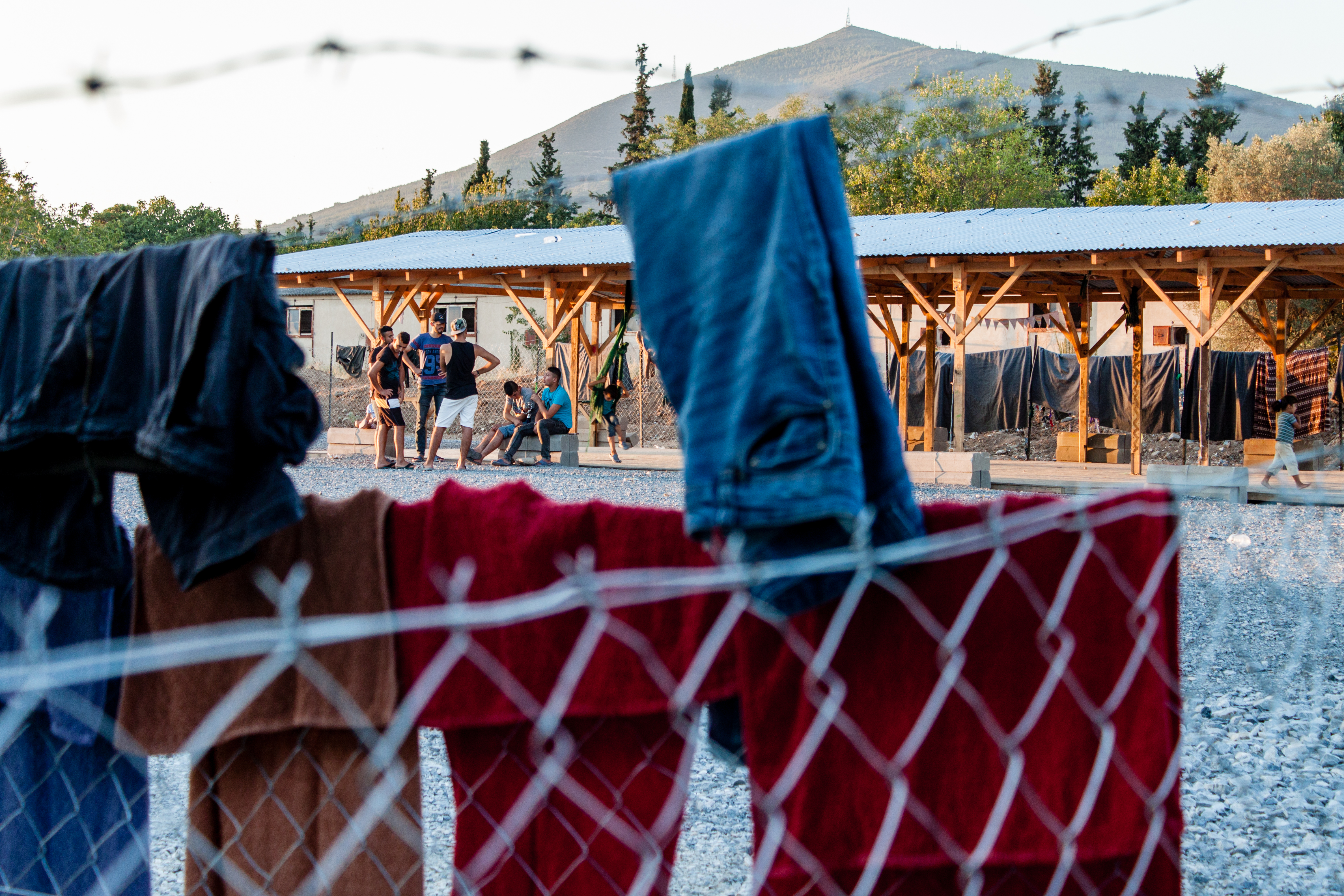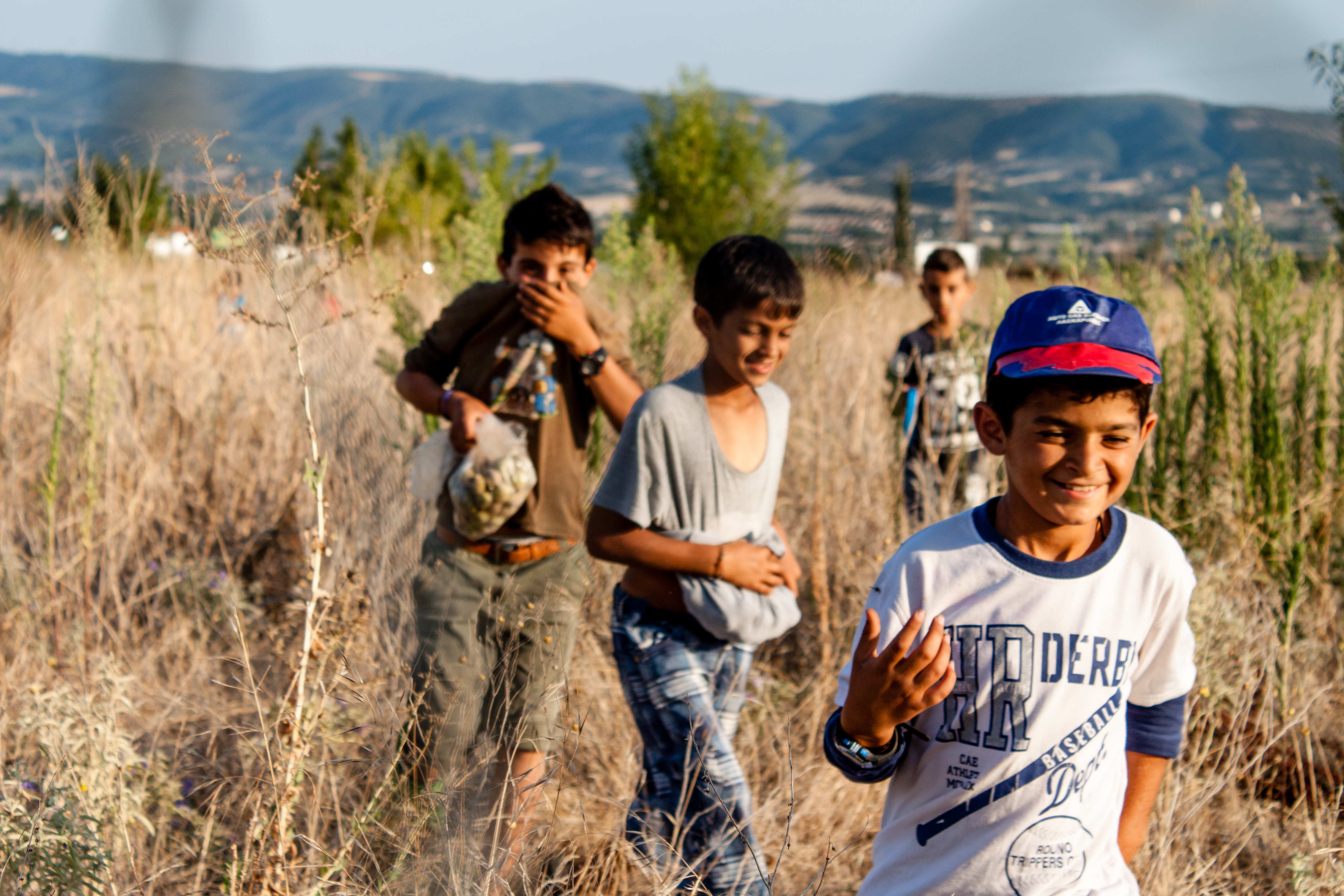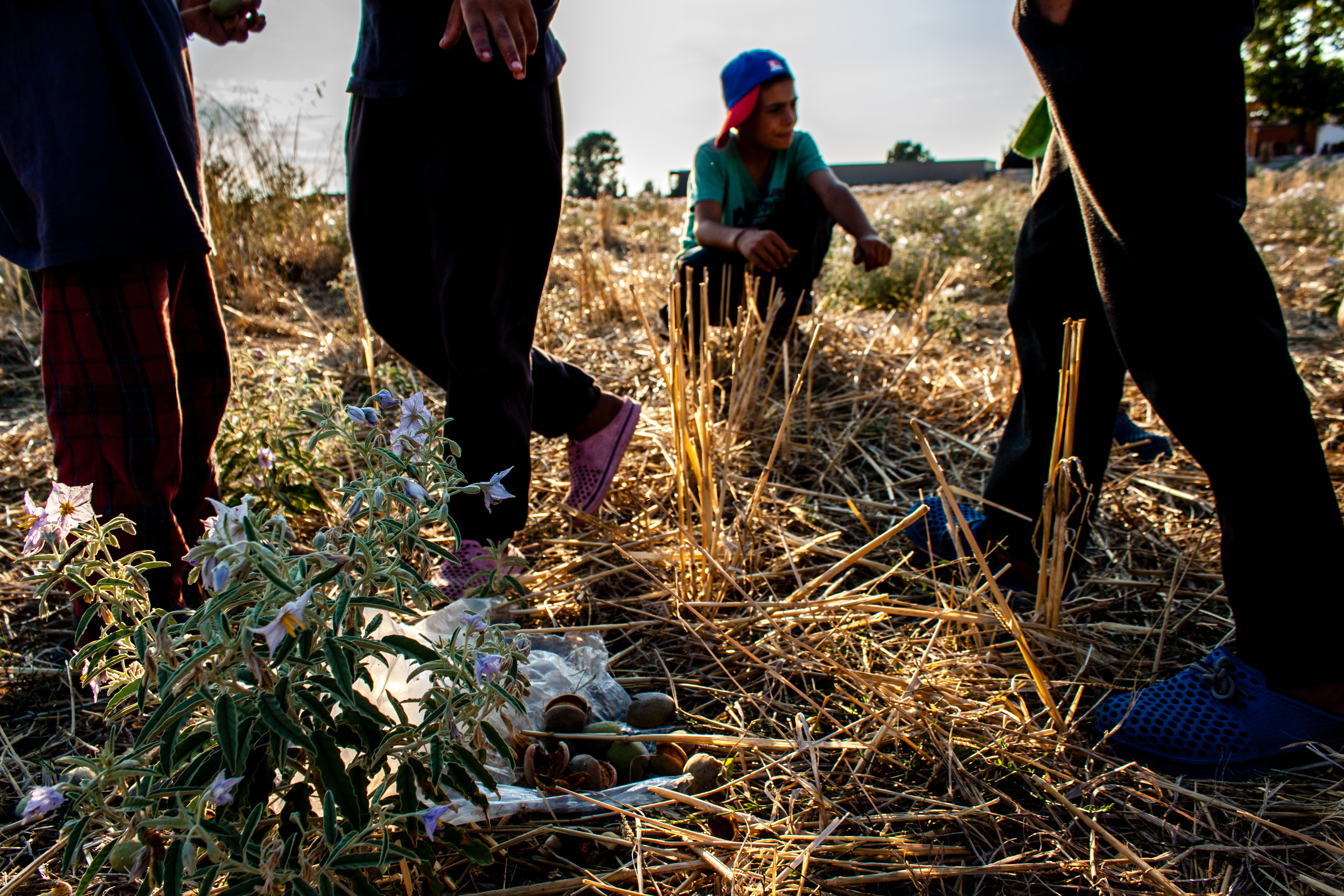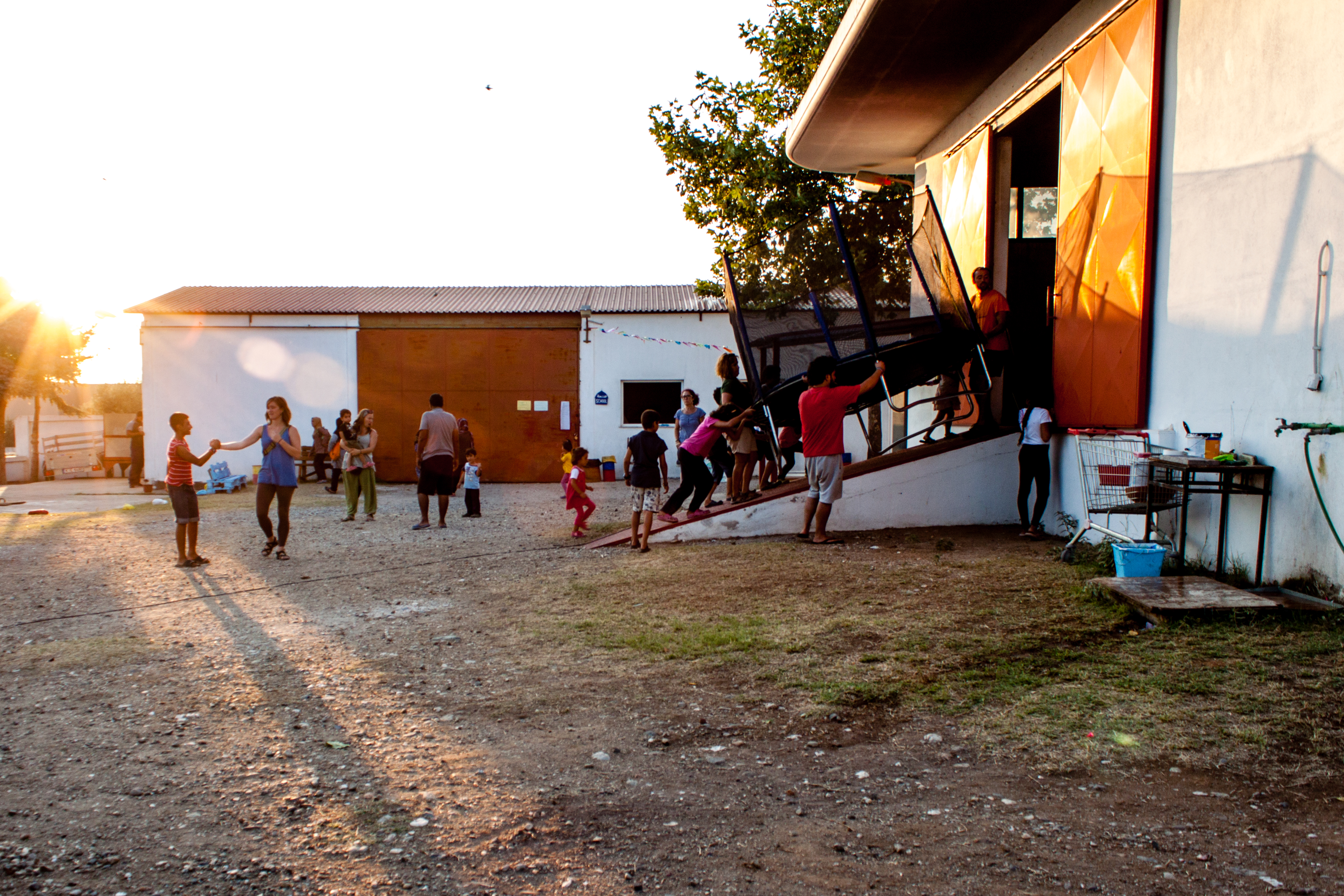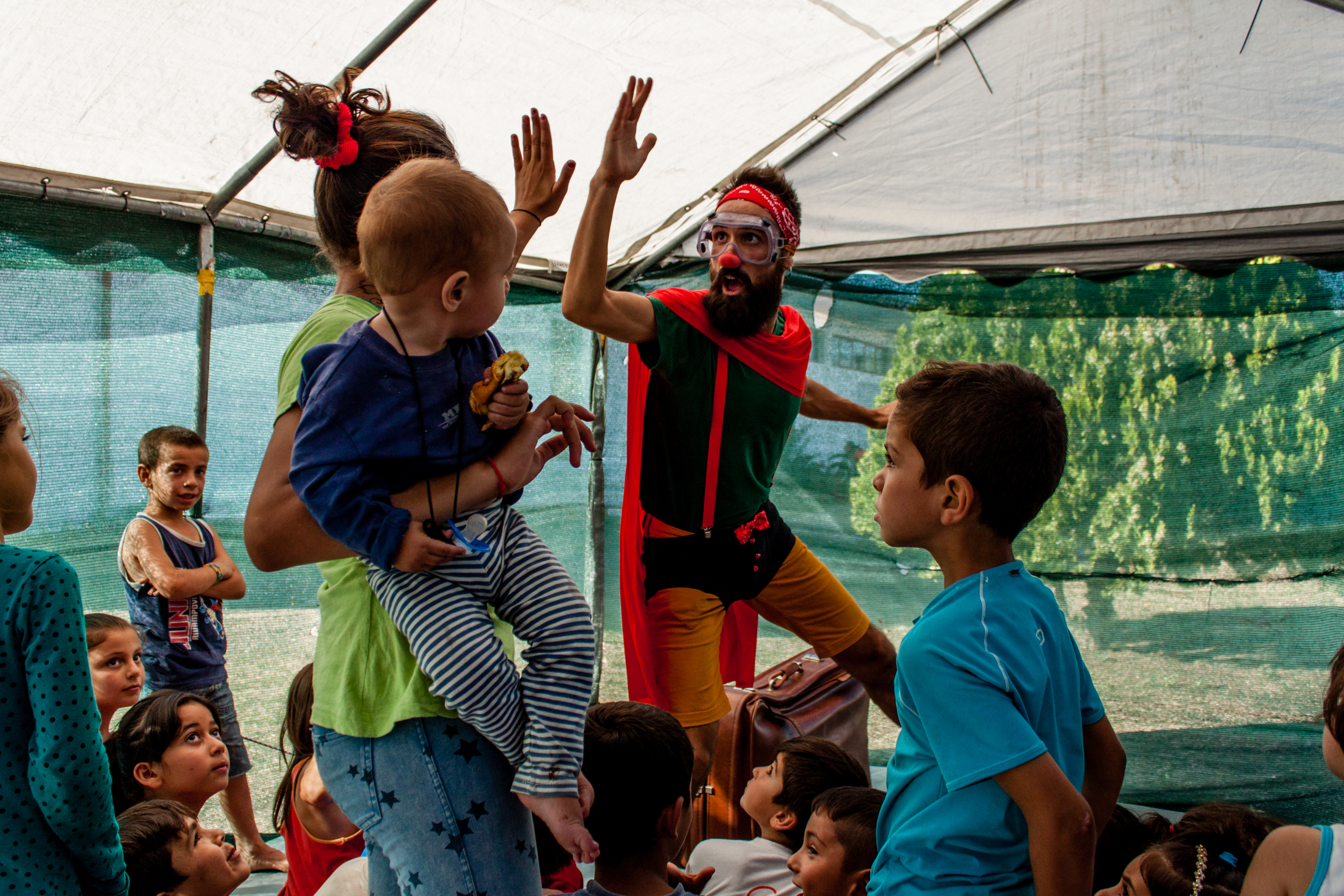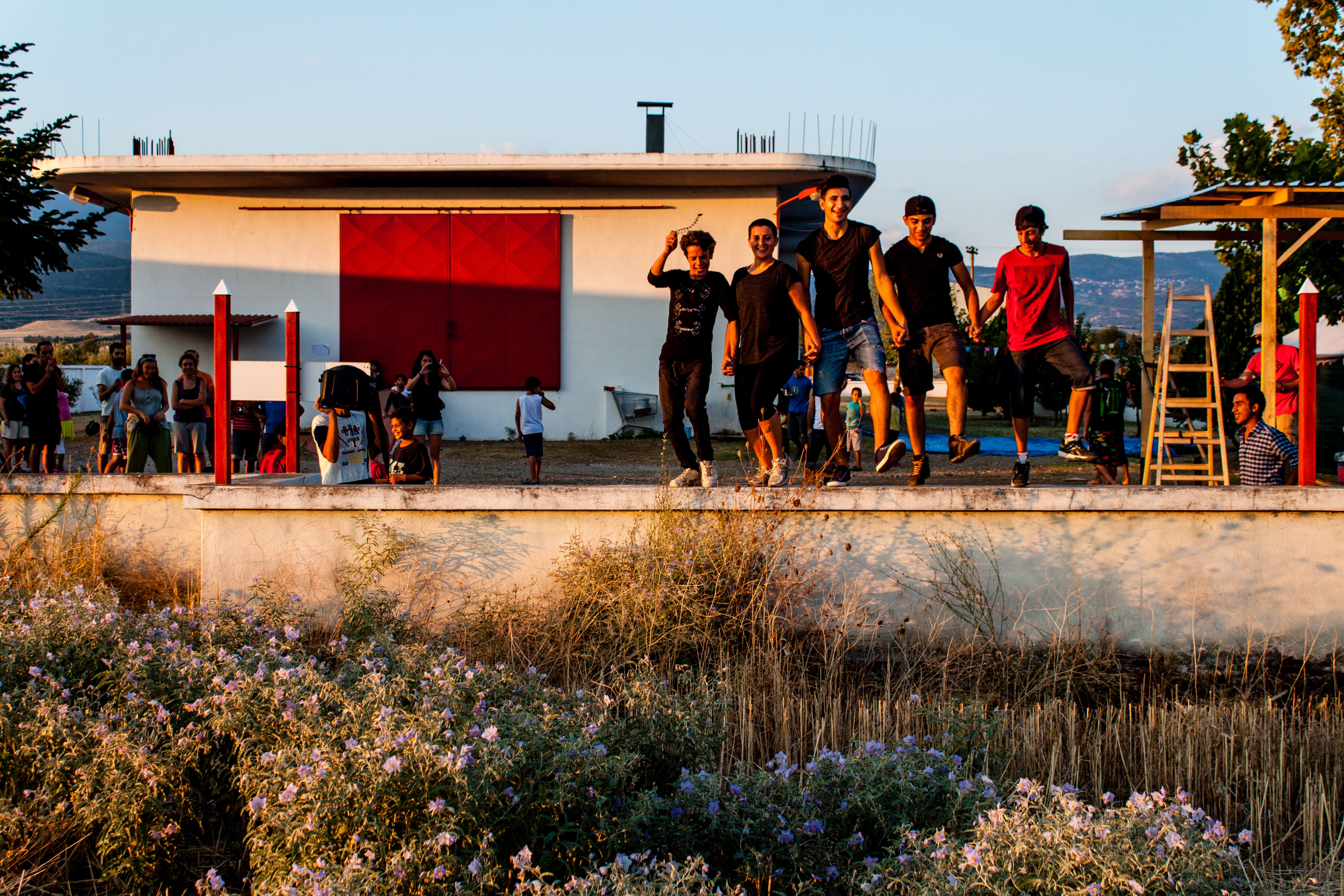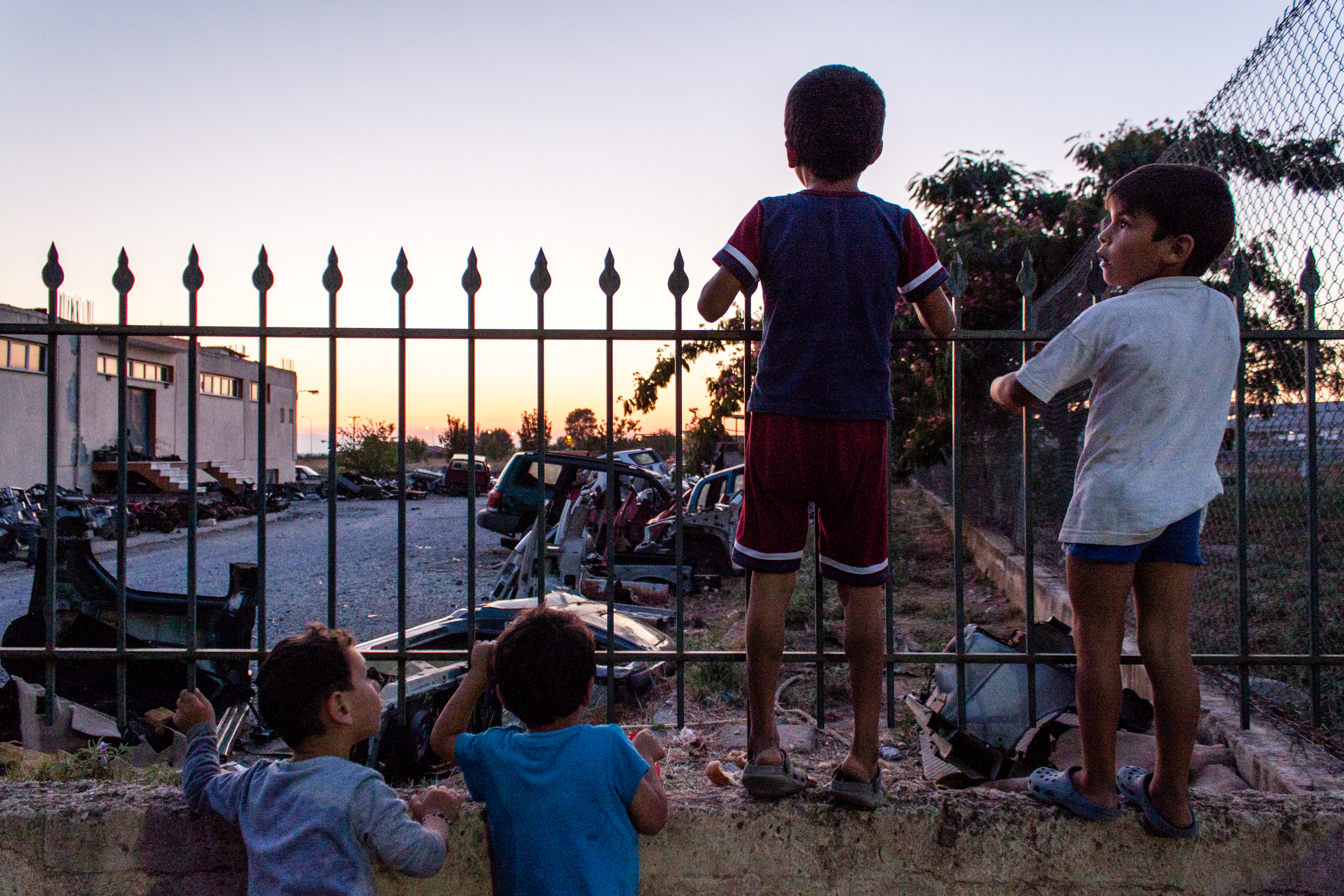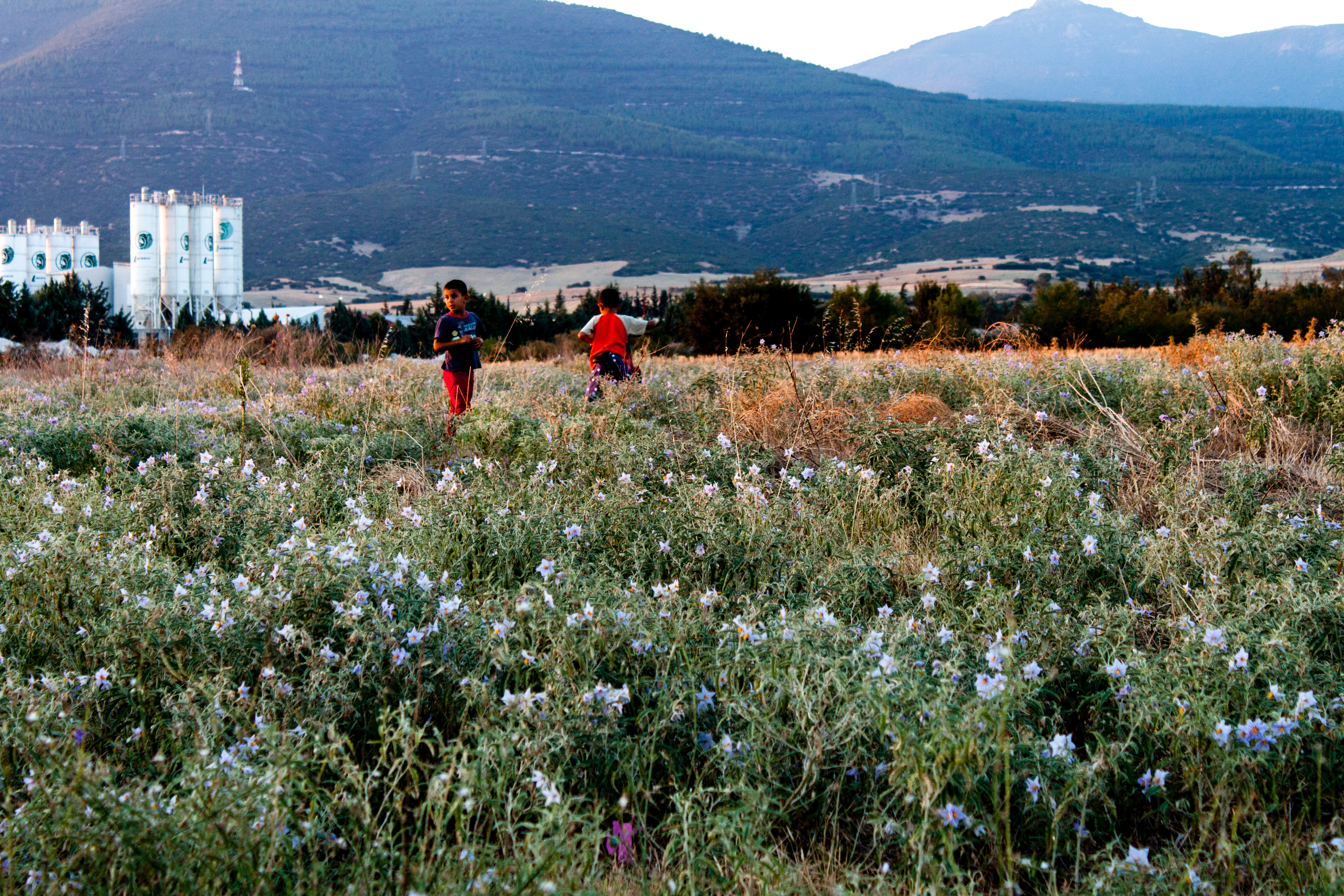By Steven Tagle
Though it’s only 30 minutes from Thessaloniki, the Vasilika refugee camp feels like another state altogether. A former chicken factory, the camp consists of nine huge, concrete hangars enclosed by barbed wire fencing and privacy screen, sitting on the side of a desolate, dusty road. As many as 1,300 Syrian, Kurdish, and Iraqi refugees have been relocated to this military-run camp from evacuated, self-organized camps near Greece’s northern border. Here, they wait for promised asylum appointments and, hopefully, for the borders to reopen. They wait to be reunited with their families, to work, to continue their education. They wait to resume their lives. Meanwhile, Greece’s second largest city, with its seaside promenade, White Tower, highly ranked university, rooftop bars, dessert shops, and acclaimed restaurants, seems worlds away.
For a week in August, a few friends and I snuck into the Vasilika camp to meet and interview refugees while volunteering at the neighboring Eko Project community center. Eko Project operates a kitchen, school, library, and women’s space on land owned by a Greek family. Originally started by volunteers at the evacuated Eko gas station camp, the center gives camp residents a place to come for community and enrichment. At the entrance to Eko, a handwritten cardboard sign reads, “No Borders. No Nations. Stop Deportations.”
Before arriving in Vasilika, I visited the Museum of Cycladic Art in Athens, where I saw a piece by Ai Weiwei: three flags created from a gold, satin fabric reminiscent of the thermal blankets given to refugees upon their arrival in Lesvos. Two of the flags were inspired by the flags of Greece and the European Union. The third flag, entitled Flag (Shadow), had a rounded shape at its center: the outline of the body of Alan Kurdi, the three-year-old Syrian boy of Kurdish ethnic background who made global headlines after he drowned while crossing the Mediterranean in September of 2015.
The flag is a fitting emblem for this shadow state: amorphous, but sinister. Since the EU-Turkey deal in March — Greece can send “all new irregular migrants” back to Turkey in exchange for €6 billion in refugee aid, visa liberalization for Turkish nationals, and renewed talks about Turkey joining the EU — refugees no longer arrive by the boatload; but their situation is no less dire. When Macedonia closed its border, Greece became the de facto holding pen for 60,000 refugees and migrants who can neither continue along the Balkan route to Germany nor return to Turkey. The 13,000 people stranded near the Macedonian border have been relocated to smaller, backwater camps like Vasilika; others are in Attica or still in the eastern Aegean islands where they landed. The Greek military strictly regulates access to the camps, and it feels as if the refugees are being sequestered, hidden from sight. I came to Vasilika as an unofficial volunteer, and when I tried to walk into the camp, a guard asked for my passport, then kicked out with a stern warning: only approved aid organizations are allowed inside. Everyone else must stay out.
But rules are meant to be broken, and on my second day at Eko Project, I befriended Nour, a 12-year-old on roller blades who led me into the camp through a hole in the fence created to allow unmonitored access. At first, I kept my head down, nervous about being stopped, but there were no guards inside the camp. The residents we passed smiled and waved, and Nour walked confidently, swiping back the long bangs that constantly fell into his face. We went to his family’s immaculately clean tent, where standard-issue gray felt blankets covered the floor and cots. There were two cots on each side of the tent, and a central clothesline from which towels and a small, potted plant hung. Two square holes had been cut at the top of the tent to let sunlight in.
Though I appeared unannounced, Nour’s mother Hevin (for more about Hevin, visit Shelley Cheung’s documentary project, She Is Syria) welcomed me with strong black coffee, orange slices, dates, and chocolate-filled croissants. I was overwhelmed by her generosity, embarrassed that she should give her food to me when outside the camp, I could have all the food I wanted. I counted the orange slices I ate and tried to take up as little space in the tent as possible. Finally, when I brought out my water bottle to drink, Hevin jokingly asked, “Is my water not good?” Syrians, like Greeks, have a deeply engrained sense of filoxenia — more than hospitality, the word means to love and honor one’s guests — which is tied to a love of food. As Saeed, a two-time refugee, told me when he invited me over for dinner with his family, “How can I sleep at night if I have one piece of bread and my neighbor has none?” Nour and Hevin’s tent became my home inside the camp, a place where I could find my friends, take water, coffee, and those ubiquitous croissants, a place to leave my gear and rest my head.
Days in the camp were long and hot. In the mid-afternoon, when the sun was strongest, temperatures reached over 100 degrees Fahrenheit. Few ventured from the shade of the hangars. Outside, all you could hear was the wind rustling the tall grass and the occasional car speeding down the road. In the tents, flies hopped from leg to leg. The heat made me feel sluggish. Time, unstructured, lost its shape. I began to glimpse the quiet desperation of life in the camp, the waiting without agency, without end, how the numbing accumulation of days suffocated the spirit.
Vasilika camp residents completed the pre-registration process in July. This is the first step towards applying for asylum in Greece, or towards requesting family reunification or relocation to another European country (though the latter option is not available to most migrants). They were promised first interviews in August, but August passed, then September. Now first interviews are scheduled at the end of 2016, with some as late as February 2017. It’s a slow, bureaucratic process, and in the midst of Greece’s economic crisis, people mistrust the government’s ability and willingness to help. There are rumors that residents will receive a monthly stipend while living in the camp: €100 for adults and €40 for minors. People don’t necessarily believe these rumors, but it gives them something to hope towards, a kind of horizon.
Meanwhile, camp resources are taxed, facilities overcrowded. The camp’s single Wi-Fi network is inadequate for 1,300 people, as are the five hot-water showers and the seldom-cleaned portable toilets. The rotating menu rarely changes: spaghetti, rice with red sauce, omelets, fasolada. Food has arrived moldy more than once. Bosses inside the camp have set up fiefdoms of power, stockpiling medication and supplies, distributing them first to family and friends. As a result, donations do not always reach those most at risk. Gossip and pettiness run rampant. Theft is a concern, and since 60% of refugees are women and children, most stay near their tents.
Repetitive daily chores keep residents busy and offer a sense of routine, if not forward momentum. The tents require constant upkeep. While it’s customary to remove one’s shoes before entering, grass and dust still find a way in, and the floors must frequently be swept. The few clothes and dishes that each family owns must be washed as well, sometimes up to five or six times a day. In the evenings, weekly movie nights offer a much-needed escape from the heat and chores. Feras, who is famous for screening the movies, projected Maze Runner 2 on the wall of a hangar, and the whole camp packed into the gravel yard to watch. At the end of the movie, hundreds of plastic chairs, boxes, and blankets were lifted overhead as people crunched back to their tents.
My travel mates and I spent long days at Eko Project, usually leaving our Airbnb apartment in Thessaloniki around 10am and returning home around 9pm. We played with young children, taught English and Arabic at the Eko Project school, and helped to rebuild the kitchen. We painted women’s nails and led them through movement classes. We made friends at the camp, sat in their tents and listened to their stories, drove them in two packed cars to a nearby lake to swim. Nour and I fought in slow motion to the Mortal Kombat theme song. Unable to say all we wanted in English, we messaged each other emojis on WhatsApp using his sister’s phone:
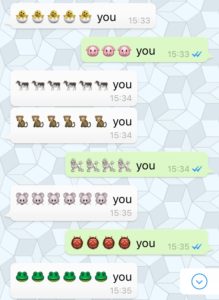
Nour was intelligent and charming. He impressed me with the English, Spanish, and Greek phrases he’d learned. I tried to teach him the myth of Daedalus, because I thought he was clever enough to escape this place, if not physically, then mentally — I wanted to make his time in Vasilika useful.
At the end of our week in the shadow state, my friends were heartbroken. They spent their last few nights sleeping in the camp. They bought vitamins for pregnant women and paid for ophthalmology appointments and food and clothes. After returning home, one friend told me that she cried for nights because she missed everyone so much. What I didn’t tell them and now have to admit, is this: while I valued the experience and the friends I made, while I felt educated and humbled by their stories and their generosity, and while I certainly will return to Vasilika come spring, what I felt most on that last day was relief.
I joyfully returned to my books and ancient monuments, to eating my weight in fresh fish and grilled octopus, meals that cost as much as the rumored monthly stipend or more. Of course, I felt, and still feel, an intense guilt at being able to travel so freely in Greece, about living in hotels and exploring islands while people I care about are stuck in Vasilika. The night we left, Feras said, “See you in Athens!” I almost invited him to grab a coffee before I realized that he was joking — the trip would be financially impossible for him.
Knowing that I had almost spoken so carelessly sickened me. I feel the same sickening guilt when friends from the camp like the photos of gourmet meals I post on Facebook. It’s the discomforting awareness of the gulf between us, of my unquestionable privilege, paired with the feeling that I did not give enough, did not let myself get close enough. I think of all the promises I made in Vasilika that I have not kept. The deflated bike tire I promised to repair on my last day. The photos of Hassan and Xabat I have yet to send. Nour and I talked about going to a beach in Perea, and I made plans to take him, but on my last day, I couldn’t find him. I didn’t even get to say goodbye.
Another piece in the Ai Weiwei exhibition is a room of 600 photos curated by Ai from local Greek photographers’ experiences in Lesvos. After returning from Vasilika, I found myself scanning the photos more closely, looking for the faces of my friends. One of the Greek photographers, Michalis Bakas from the University of the Aegean, said, “Once this adventure is over, we will still be poor, but at least we’ll be able to say that when the going was rough, we were there, by the side of our fellow human beings.”
As the camp confines people in physical space, the word refugee isolates them linguistically; the term becomes a rhetorical trap. We envision refugees collectively as victims of war, recipients of aid, additional burdens on a strained state. In the long term, though, the word becomes prescriptive, narrowing our vision of these people and our relationship to them, limiting possible solutions for integrating them into our society. That’s why organizations like Melissa, a network of migrant women based in Athens, have shifted their focus from aid to integration, motivating women to commute from camps to the city center with bus tickets, practical Greek language lessons, and other services based on the experiences of previous migrants. “Today’s refugees are tomorrow’s neighbors,” Melissa cofounder Nadina Christopoulou said at a recent panel framing integration challenges and solutions. “This is not a distant problem. It needs to involve the entire community.”
Nour still messages me. Since he’s learning English, he sounds very formal online. Our conversations are always the same. Hello, he says. How are you. When you came back.
February, I tell him. I’ll be back in February, I promise. I miss you too. I can understand why he keeps asking. Time in the camp has no meaning. Nor do promises, really. You only believe what you keep telling yourself, or what you keep hearing. So every few weeks, I receive these texts from my friend in the shadow state.
Hello
How are you
When you will came back
I miss you
Came back
My brother
—
This is not an official Department of State website or blog, and the views and information presented are my own and do not represent the Fulbright Program or the U.S. Department of State.


